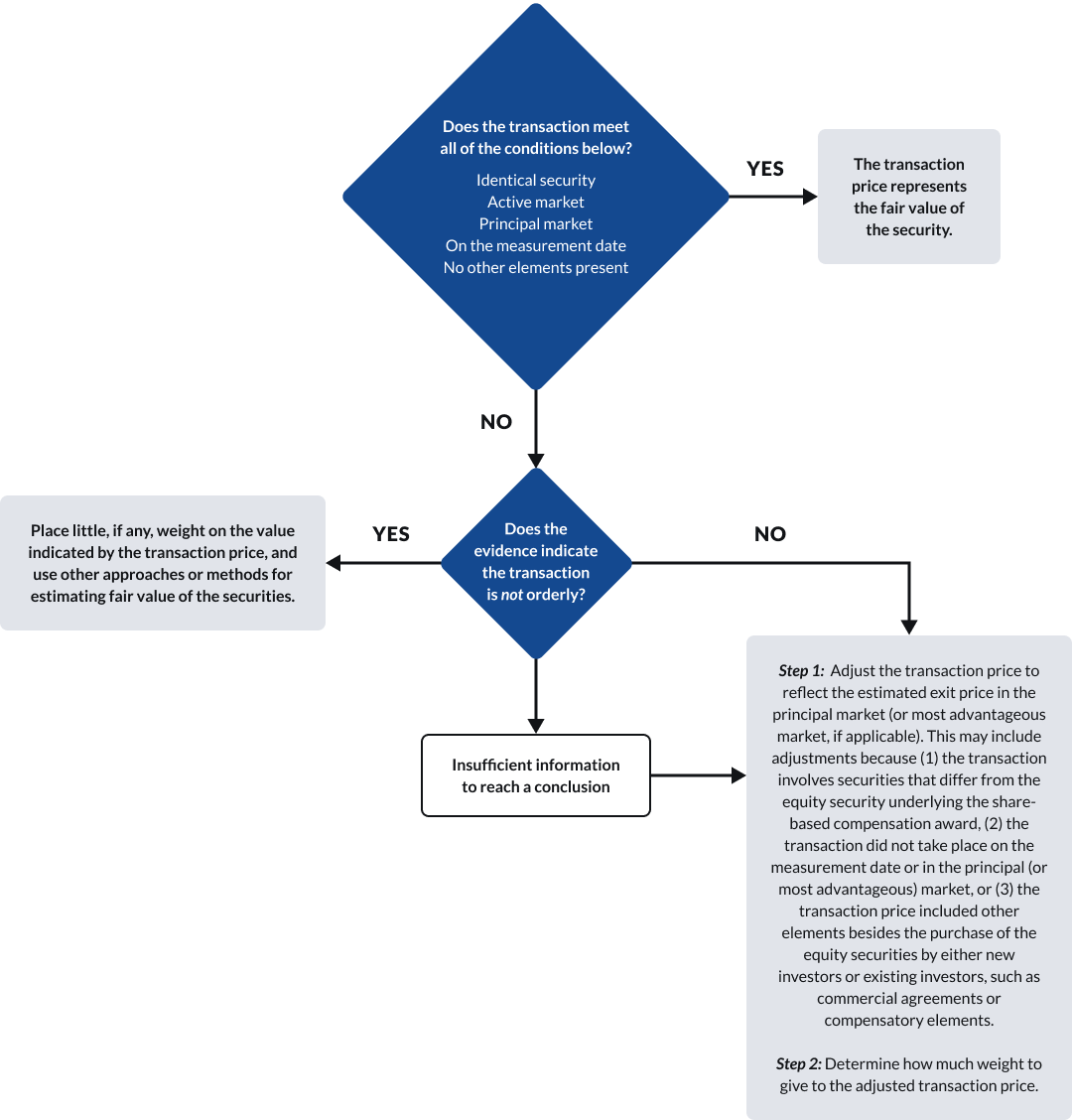Fair value and the role of secondary market transactions

As private markets mature, the emergence of private company secondary marketplaces—and the rise in secondary trading activity—has posed a challenge for venture firms that must determine whether those trades could be indicative of fair value.
To address the complexities of evaluating secondary market transactions in fair value, the American Institute of Certified Public Accountants (AICPA) has published a working paper that could lay the groundwork for future guidance on the subject. The key takeaway: firms may need to start formally considering secondary market transactions in fair value determinations, even if ultimately incorporating those transactions represents a high bar.
Working paper on considering secondary market transactions could translate to real guidance
To be clear, the AICPA has, for now, only published a working paper—currently open for industry comment—focused on the valuation of stock-based compensation expense. However, the relevance of this guidance to another guide on valuing private companies held by venture capital and private equity funds means fund managers should closely track these developments to ensure preparedness for any changes to fair value determination practices.
Specifically, the working paper provides a draft framework for incorporating these transactions in fair value. As noted above, the below framework is subject to change and does not constitute a recommendation from AICPA today:

Background on fair value and why secondary market transactions could be indicative
Fair value, according to the U.S. GAAP, is defined as the price at which an asset or liability could be exchanged in an orderly transaction between market participants at the measurement date. It reflects the current market conditions and is essential for accurate financial reporting. For venture capital firms, fair value assessments are crucial for evaluating portfolio companies, supporting investment decisions, and maintaining compliance with accounting standards.
Traditional valuation methods, which often rely heavily on public market comparables, can fall short in capturing the nuanced realities of private companies. Secondary market transactions have the potential to provide real-time data on market conditions, offering a snapshot of investor sentiment and demand.
That said, secondary market trades can also present challenges, such as the reliability of the data and uncertainty around participant and market structure. For example, not all trading venues provide granularity into key elements of the trade, such as participant type (institutional vs. retail), structure (direct vs. SPV), share class (preferred vs. common), and size ($500k vs. $5M). As detailed above, these are all key elements when considering whether a trade could be indicative of fair value.
What should venture firms monitor?
As the AICPA’s working paper continues to evolve, there are several areas that may be helpful for venture firms to monitor:
- Ongoing industry feedback: The AICPA is currently collecting comments from industry participants. Fund managers can monitor updates and consider participating in the feedback process to help shape future guidance.
- Potential for formal guidance: While the current working paper is not yet formal guidance, its relevance to the broader valuation of private company holdings means that future updates could have a direct impact on fair value determination practices for venture funds.
- Framework for incorporating secondaries: The working paper outlines a framework for considering secondary market transactions in fair value. Funds may want to familiarize themselves with this framework and assess how it might affect their current valuation policies and procedures if adopted.
- Data quality and context: As always, the reliability and context of secondary market data remain paramount. Funds should continue to scrutinize the quality of data and the specifics of each transaction, even as new guidance emerges.
The punchline: the landscape is shifting. Staying up-to-date with the latest AICPA developments and industry best practices will be essential for maintaining compliance and ensuring robust, defensible fair value assessments. For more insights on the core components and best practices in venture capital valuation policies, explore the guide.
©2025 JPMorgan Chase & Co. All rights reserved. JPMorgan Chase Bank, N.A. Member FDIC.
This material is not the product of J.P. Morgan’s Research Department. It is not a research report and is not intended as such. This material is provided for informational purposes only and is subject to change without notice. It is not intended as research, a recommendation, advice, offer or solicitation to buy or sell any financial product or service, or to be used in any way for evaluating the merits of participating in any transaction. Please consult your own advisors regarding legal, tax, accounting or any other aspects including suitability implications, for your particular circumstances or transactions. J.P. Morgan and its third-party suppliers disclaim any responsibility or liability whatsoever for the quality, fitness for a particular purpose, non-infringement, accuracy, currency or completeness of the information herein, and for any reliance on, or use of this material in any way. Any information or analysis in this material purporting to convey, summarize, or otherwise rely on data may be based on a sample or normalized set thereof. This material is provided on a confidential basis and may not be reproduced, redistributed or transmitted, in whole or in part, without the prior written consent of J.P. Morgan. Any unauthorized use is strictly prohibited. Any product names, company names and logos mentioned or included herein are trademarks or registered trademarks of their respective owners.
Aumni, Inc. (“Aumni”) is a wholly-owned subsidiary of JPMorgan Chase & Co. Access to the Aumni platform is subject to execution of an applicable platform agreement and order form and access will be granted by J.P. Morgan in its sole discretion. J.P. Morgan is the global brand name for JPMorgan Chase & Co. and its subsidiaries and affiliates worldwide. Aumni does not provide any accounting, regulatory, tax, insurance, investment, or legal advice. The recipient of any information provided by Aumni must make an independent assessment of any legal, credit, tax, insurance, regulatory and accounting issues with its own professional advisors in the context of its particular circumstances. Aumni is neither a broker-dealer nor a member of any exchanges or self-regulatory organizations.
383 Madison Ave, New York, NY 10017





